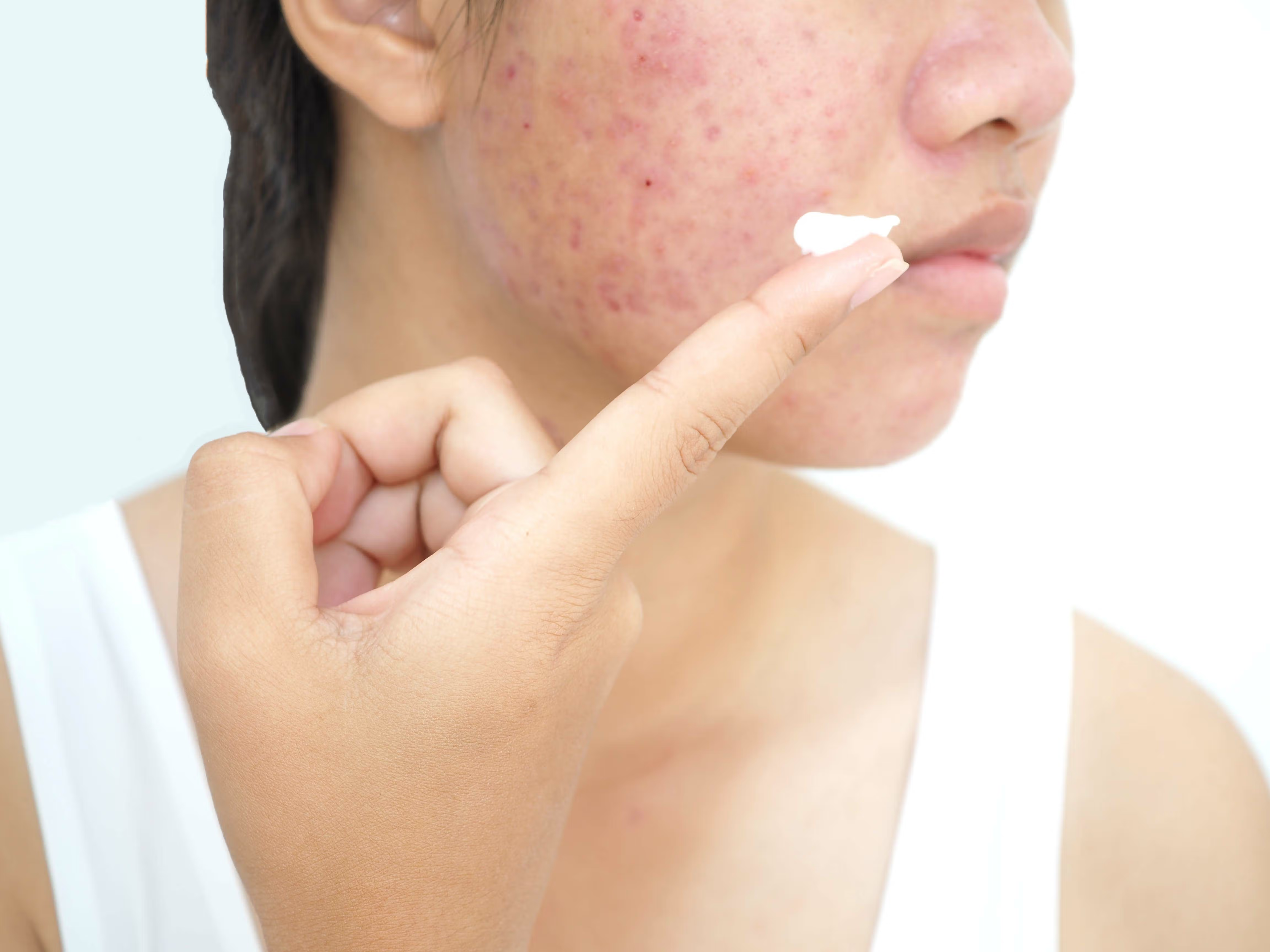- Case-Based Roundtable
- General Dermatology
- Eczema
- Chronic Hand Eczema
- Alopecia
- Aesthetics
- Vitiligo
- COVID-19
- Actinic Keratosis
- Precision Medicine and Biologics
- Rare Disease
- Wound Care
- Rosacea
- Psoriasis
- Psoriatic Arthritis
- Atopic Dermatitis
- Melasma
- NP and PA
- Skin Cancer
- Hidradenitis Suppurativa
- Drug Watch
- Pigmentary Disorders
- Acne
- Pediatric Dermatology
- Practice Management
- Prurigo Nodularis
- Buy-and-Bill
Article
Isotretinoin AEs By The Numbers
Author(s):
Recent meta-analysis takes a look at possible adverse effects of the acne medicine, their frequency and severity.
First sythnesized in 1955, isotretinoin remains acne treatment mainstay.1 A recent literature review and assessment looked at data on adverse effects (AEs) from the medication in research from 1981-2021. “Isotretinoin therapy affects almost all of the systems in the human body, causing numerous adverse events. However, they mainly concern mild mucocutaneous conditions (severe cases are rare) and represent individual responses to a drug,” wrote study authors Kapala et al.1
However, pregnancy remains a contraindication. While this review did not delve into isotretinoin use in pregnancy beyond a general statement that contraception should be used, teratogenicity dominates the conversation on risk. Unlike most of the AEs documented by Kapala et al, documented birth defects associated with isotretinoin use can be severe and the drug remains contraindicated in pregnant patients.2
The authors established 86 classifications of AEs. “Isotretinoin adverse events were mainly mucocutaneous conditions or conditions related to them such as dry skin, skin fragility, dermatitis, erythemal changes, xerosis, rashes, dry lips, dry and sore mouth, excessive thirst, cheilitis, and dry nose. Fortunately, they are all reversible and not severe,” wrote Kapala et al.1 Of the most common AEs, the authors summarized their frequency. Here are the three most common AEs in each group:
Dermatological Changes
- Dry skin: 49.07%
- Dryness of other mucosal tissues: 29.41%
- Acne flares: 47.92%
Eye Issues
- Dry or irritated eyes: 26.87%
- Conjunctival changes: 22.49%
- Eye pain: 17.16%
Nasopharyngeal Symptoms
- Dry nose: 40.23%
- Epistaxis:23.82%
- Nasopharyngitis:13.29%
Oral Issues
- Dry lips: 58.21%
- Cheilitis: 41.50%
- Dry and sore mouth: 37.88%
Mood and Neurological Symptoms
- Fatigure and tiredness:24.31%
- Decreased appetite: 16.31%
- Headaches: 10.52%
Muskuloskeletal issues
1. Back pain: 19.6%
2. Arthralgia: 17.31%
3. MS discomfort: 12.58%
The study showed infections as another common AE, at 37.93%. At between 9 and 10 percent, the only gastrointenstinal issues summarized were GI disorders and abdominal pain. The authors also summarized other AEs and laboratory abnormalities. The authors use the GRADE scale3 for the certainty of the evidence, with the body of evidence for various AEs ranging across all four of the scale's categories.
Reference:
1.Kapała J, Lewandowska J, Placek W, Owczarczyk-Saczonek A. Adverse Events in Isotretinoin Therapy: A Single-Arm Meta-Analysis. Int J Environ Res Public Health. 2022;19(11):6463. Published 2022 May 26. doi:10.3390/ijerph19116463
2.Pile HD, Sadiq NM. Isotretinoin. In: StatPearls. Treasure Island (FL): StatPearls Publishing; May 8, 2022.
3. Balshem H, Helfand M, Schünemann HJ, et al. GRADE guidelines: 3. Rating the quality of evidence. J Clin Epidemiol. 2011;64(4):401-406. doi:10.1016/j.jclinepi.2010.07.015





